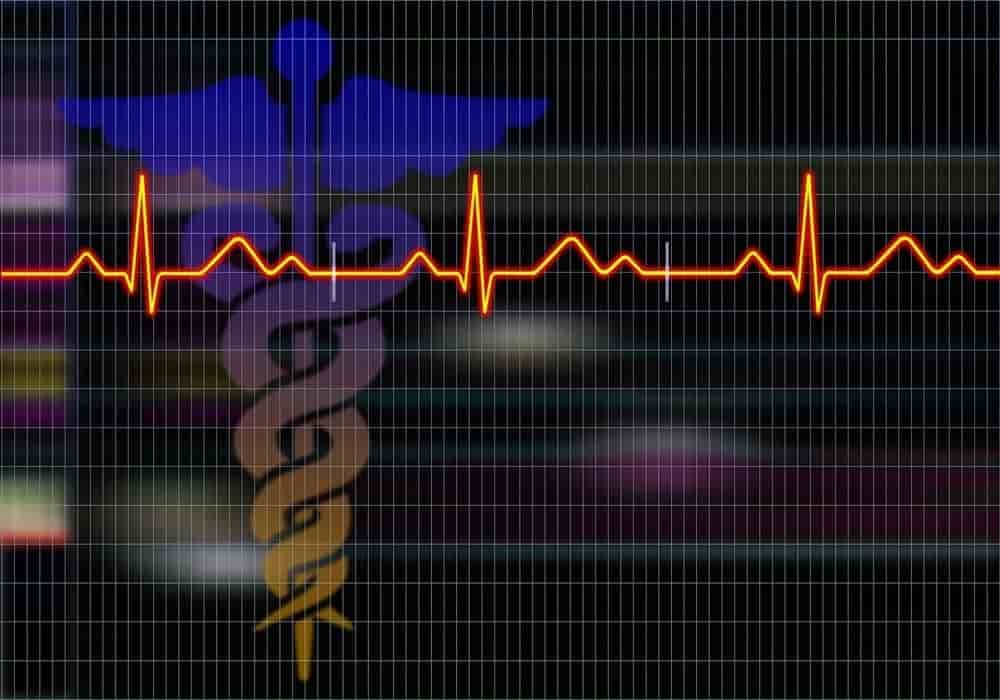Heart Beat
A normal heart beat rate is between 60 and 100 beats per minute, at rest. However, it will vary depending on when it was measured and what you did immediately before testing and reading your heart beat.
For example, it is higher when you walk than when you sit and rest. This is because your body needs more energy when you are active and your heart has to work harder.
When your body is fit & healthy, your resting heart rate will decrease. For example, an athlete may have a resting heart rate of 40-60 bpm or lower.
Average resting heart beat rate by age
Resting heart rate varies by age:
Newborn: 140 ± 50
1–2 years: 110 ± 40
3–5 years: 105 ± 35
6–12 years: 95 ± 30
adolescent or adult: 70 ± 10
elderly person: 65 ± 5
In healthy adults, at rest, the heart rate is between 50 (athlete practicing endurance) and 80 beats per minute. During an effort, the theoretical maximum heart rate is 220 minus the age (example: 220 – 40 years = 180).
The resting heart rate is not constant over 24 hours because of the different biological cycles. It is at the maximum around noon. Digestion, heat or cold causes an increase in heart rate.
Stressors influence heart rate through three mechanisms: nervous, chemical and physical. Humans have an autonomic nervous system made up of the sympathetic and parasympathetic nervous systems. The first has the function of increasing the heart rate; the second to decrease it.
Whats a good resting heart rate?
A measure of resting heart rate
What is meant by resting heart rate is when you are not doing any activity.
Resting heart rate measure for men |
|||||||
|---|---|---|---|---|---|---|---|
| Age | Heart rate per minute (bpm) | ||||||
| Athlete | Very good | Good | Above average | Medium or Average | Below average | Bad | |
| 18-25 | 49-55 | 56-61 | 62-65 | 66-69 | 70-73 | 74-81 | 82+ |
| 26-35 | 49-54 | 55-61 | 62-65 | 66-70 | 71-74 | 75-81 | 82+ |
| 36-45 | 50-56 | 57-62 | 63-66 | 67-70 | 71-75 | 76-82 | 83+ |
| 46-55 | 50-57 | 58-63 | 64-67 | 68-71 | 72-76 | 77-83 | 84+ |
| 56-65 | 51-56 | 57-61 | 62-67 | 68-71 | 72-75 | 76-81 | 82+ |
| 65+ | 50-55 | 56-61 | 62-65 | 66-69 | 70-73 | 74-79 | 80+ |
Resting heart rate measure for women |
|||||||
|---|---|---|---|---|---|---|---|
| Age | Heart rate per minute (bpm) | ||||||
| Athlete | Very good | Good | Above average | Medium or Average | Below average | Bad | |
| 18-25 | 49-55 | 56-61 | 62-65 | 66-69 | 70-73 | 74-81 | 82+ |
| 26-35 | 54-59 | 60-64 | 65-68 | 69-72 | 73-76 | 77-82 | 83+ |
| 36-45 | 54-59 | 60-64 | 65-69 | 70-73 | 74-78 | 79-84 | 85+ |
| 46-55 | 54-60 | 61-65 | 66-69 | 70-73 | 74-77 | 78-83 | 84+ |
| 56-65 | 54-59 | 60-64 | 65-68 | 69-73 | 74-77 | 78-83 | 84+ |
| 65+ | 54-59 | 60-64 | 65-68 | 69-72 | 73-76 | 77-84 | 84+ |
Why is my heart beating too fast?
Several factors promote these unexpected changes in heart rate, such as strong emotions or stress, the abuse of stimulants (coffee, nicotine, energy drinks) or certain medications. They can also occur in the event of dehydration, lack of sleep, hypoglycemia or during certain pathologies such as hyperthyroidism, anemia or an episode of fever.
People who naturally have a fast heart rate (between 80 and 90 beats per minute), or who exercise without training, are also more likely to be affected.
Should we treat palpitations?
Following a complete cardiac examination and after having eliminated another cause or an established rhythm disturbance (see below), if it is isolated palpitations, there is strictly speaking no need for treatment. permanent. On the other hand, some adjustments in the rules of life are advisable.
Of course, substances like coffee or alcohol and drugs that cause the palpitations should be stopped. In “nervous” or stressed subjects, learning to control your stress is a good thing: calm your breathing and relax. In addition, it is recommended to seek advice from your pharmacist, who will indicate food supplements or relaxing phytotherapy treatments more indicated than anxiolytics which themselves should not be taken continuously.
What to do in case of palpitations?
First sit down and breathe quietly and evenly for a few minutes. Take his pulse, which helps to objectify cardiac acceleration.
Of course, quit smoking and if these palpitations are due to excessive coffee drinking, drink plenty of water to eliminate the caffeine.
Make an appointment with his doctor, especially for a first episode, in order to have a cardiac assessment.
Tachycardia
Tachycardia is a disease that makes the heart beat too fast. A healthy heart beats between 50 and 80 times per minute. Exercise, stress, or fear can make the heart speed up, but this is a normal reaction.
Information: Cleverly Smart is not a substitute for a doctor. Always consult a doctor to treat your health condition.
Sources: WebMD, NHS UK , Medical News Today, American Heart Association
Photo credit: Pixabay

